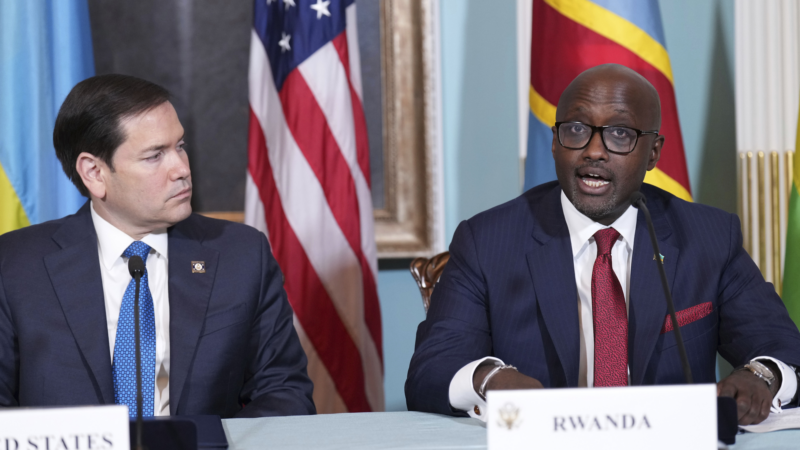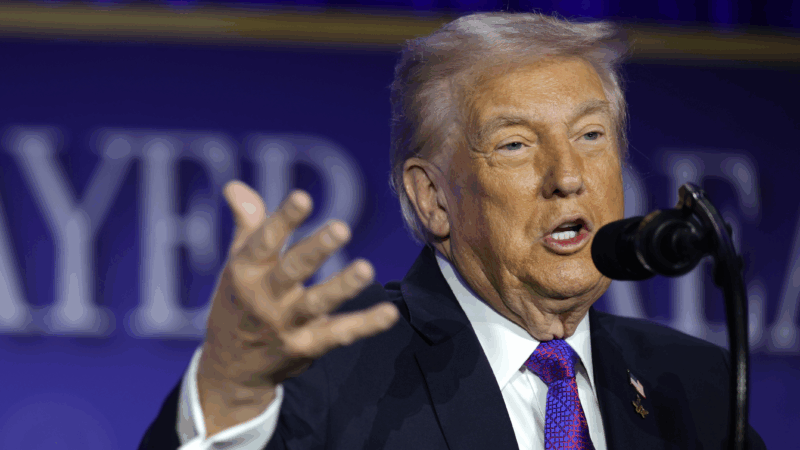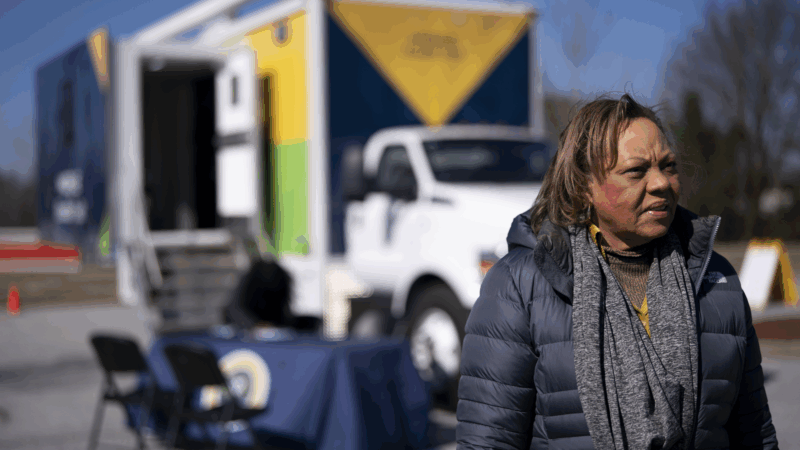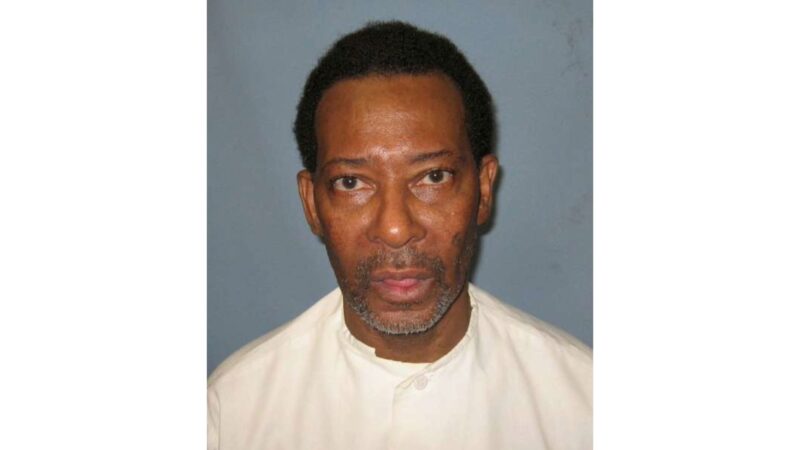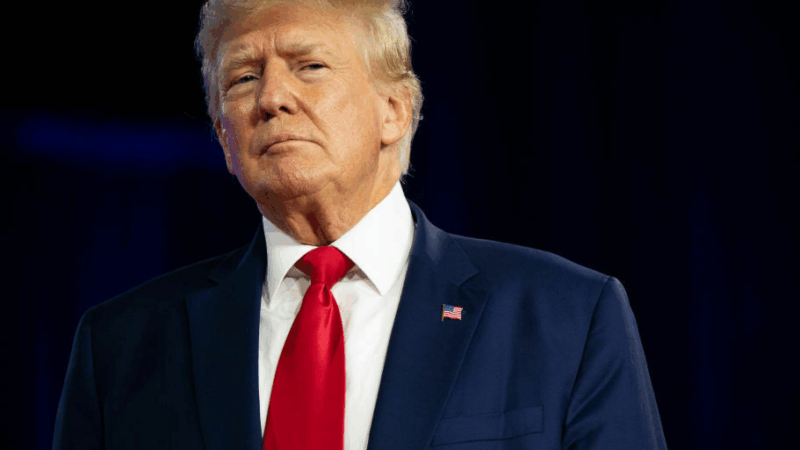Rwanda says it’s in ‘early stages’ of talks with U.S. to take in deported migrants
Rwandan Foreign Minister Olivier Nduhungirehe told Rwandan state TV that his government was in “early talks” with Washington regarding taking in third-country nationals deported from the U.S.
“We are now in talks with the U.S. about a deal on migration,” he said, confirming days of rumors.
Nduhungirehe said plans weren’t concrete yet, but noted that Rwanda has experience in taking in migrants, saying, “it’s not the first time that we’d be engaging in such a kind of deal.”
Asked to confirm the comments, the U.S. State Department told NPR only that “ongoing engagement with foreign governments is vital to deterring illegal and mass migration and securing our borders.”
President Trump has made deporting illegal immigrants a cornerstone of his presidency. Last month Secretary of State Marco Rubio said the administration was looking for countries willing to take deportees, even if it means relocating them to places they aren’t from.
“We are working with other countries to say, ‘We want to send you some of the most despicable human beings to your countries…Will you do that as a favor to us?” he said. “And the further away the better, so they can’t come back across the border.”
Located in East Africa, in the Great Lakes region bordering the Democratic Republic of Congo, Rwanda has expressed interest.
But Britain had a similar idea a few years ago that didn’t pan out.
The U.K. spent almost $1 billion on a project to send the country’s deported migrants to Rwanda before the initiative was scrapped last year. Rwanda is still reportedly chasing millions it says is owed by Britain.
British Prime Minister Kier Starmer called the plan, initiated by his predecessor, “an insult to anyone’s intelligence” and “a gimmick.”
Even without the expense, critics say Rwanda’s abysmal rights record under President Paul Kagame means it’s no place to resettle people.
“Rwanda under the long-ruling Kagame dictatorship is simply not a safe country, it’s a totalitarian police state by any standard,” said Jeffrey Smith, founder of pro-democracy nonprofit Vanguard Africa.
Michela Wrong, a journalist and author of a book on Rwanda, also said the country is not a suitable place to send deportees.
“This is a country where the elections are routinely rigged, where opposition activists disappear and are found murdered…where opposition leaders aren’t allowed to run in the elections, journalists are jailed or end up fleeing the country,” she said.
She also said the timing of the talks between the U.S. and Rwanda was suspect because of the conflict in neighboring Democratic Republic of Congo between the country’s army and Rwanda-backed M23 rebels.
“The timing of this deal does not seem to me to be a coincidence and I think it would be extremely damaging if a deal of this kind were to go through,” she said.
The U.S. has been acting as a peace broker, promising investments in the critical minerals sector in the region if the conflict ends.
Trump senior Africa adviser Massad Boulos announced yesterday that he received the draft texts of a peace proposal from both Rwanda and Congo.
Wrong says she is concerned that if Rwanda and the U.S. go ahead with the deportee deal, the U.S. might relax its pressure on Kigali to stop actions in Congo.
Mariah Carey, coffee makers and other highlights from the Olympic opening ceremony
NPR reporters at the Milan opening ceremony layered up and took notes.
Trump’s harsh immigration tactics are taking a political hit
President Trump's popularity on one of his political strengths is in jeopardy.
A drop in CDC health alerts leaves doctors ‘flying blind’
Doctors and public health officials are concerned about the drop in health alerts from the Centers for Disease Control and Prevention since President Trump returned for a second term.
Photos: Highlights from the Winter Olympics opening ceremony
Athletes from around the world attended the 2026 Winter Olympics opening ceremony in Milan.
Alabama sets execution for man in auto parts store customer’s death
Gov. Kay Ivey on Thursday set a March 12 execution using nitrogen gas for Charles “Sonny” Burton. Burton was convicted as an accomplice in the shooting death of Doug Battle, a customer who was killed during an 1991 robbery of an auto parts store in Talladega.
Trump posts racist meme of the Obamas — then deletes it
Trump's racist post came at the end of a minute-long video promoting conspiracy theories about the 2020 election.

